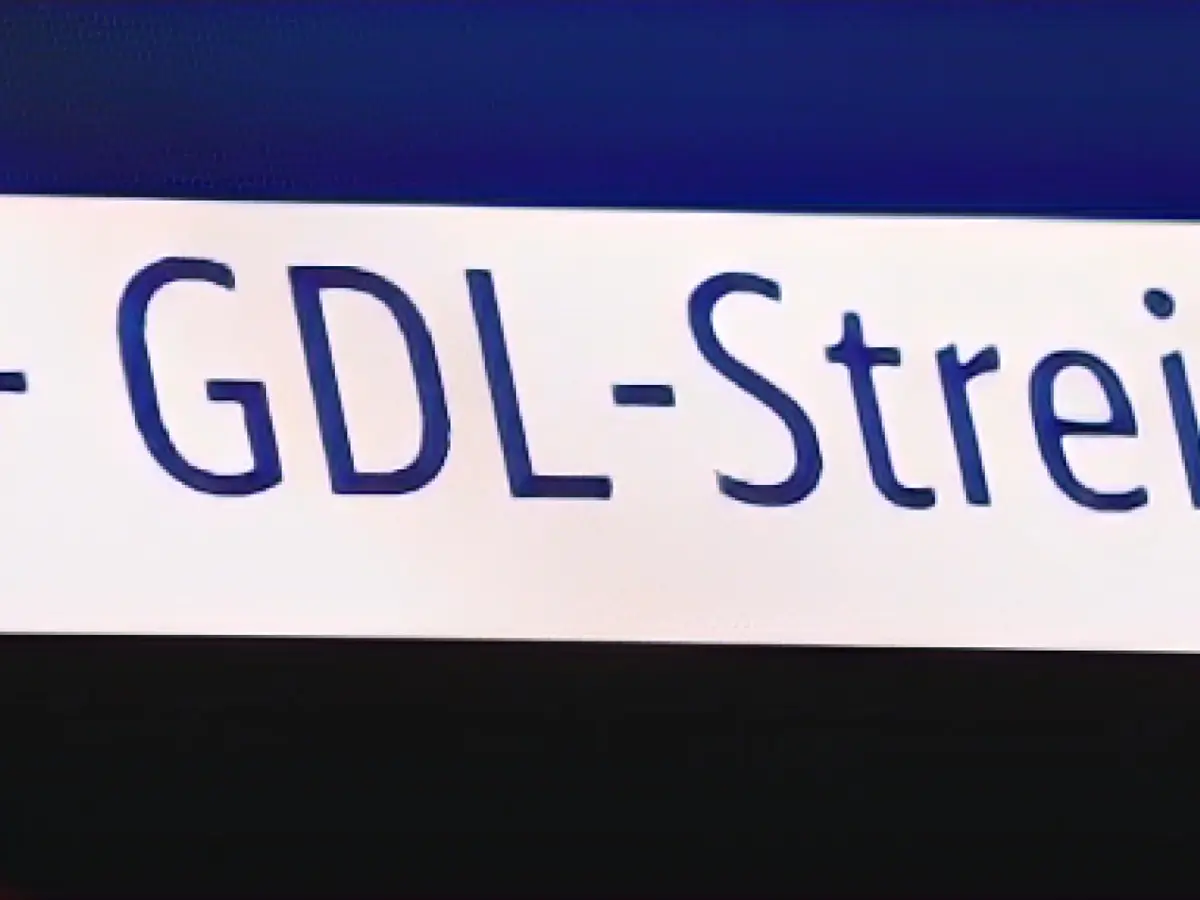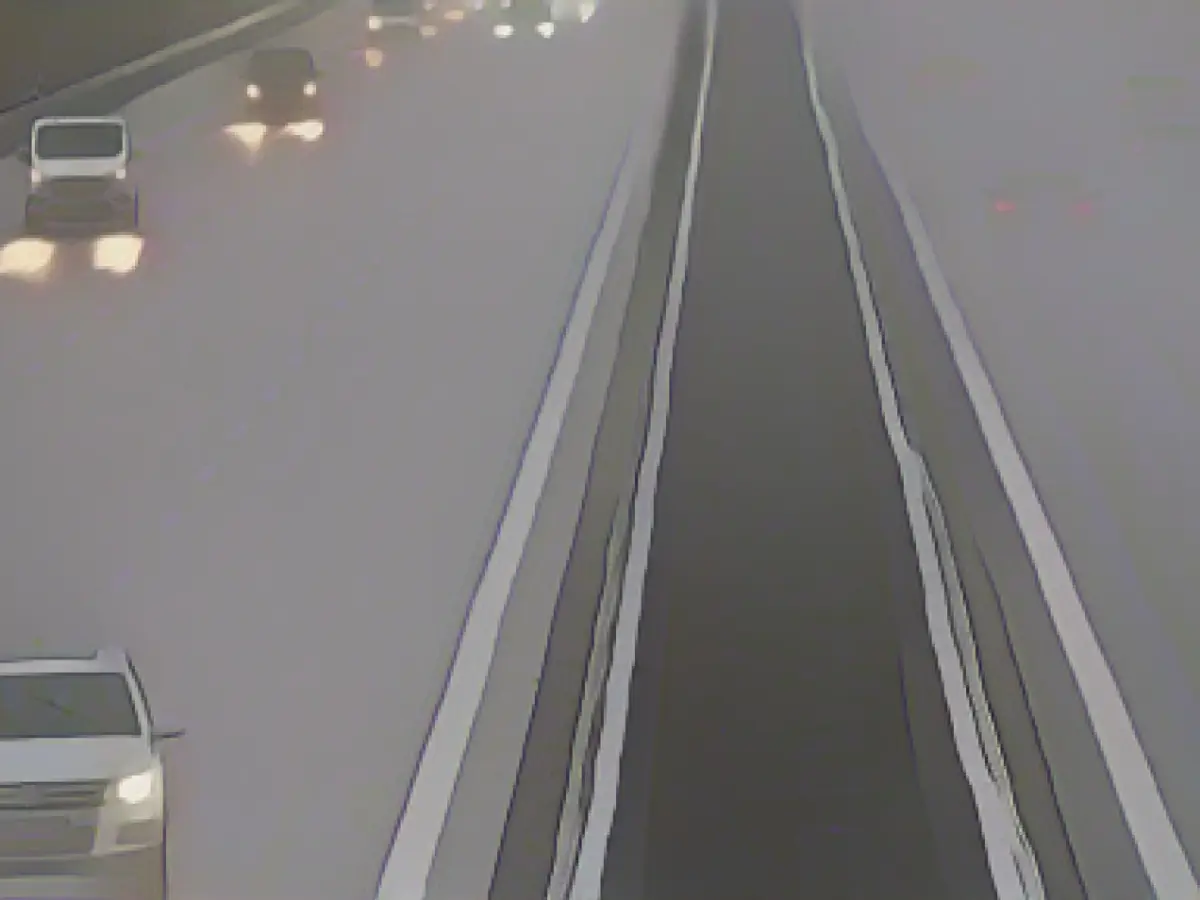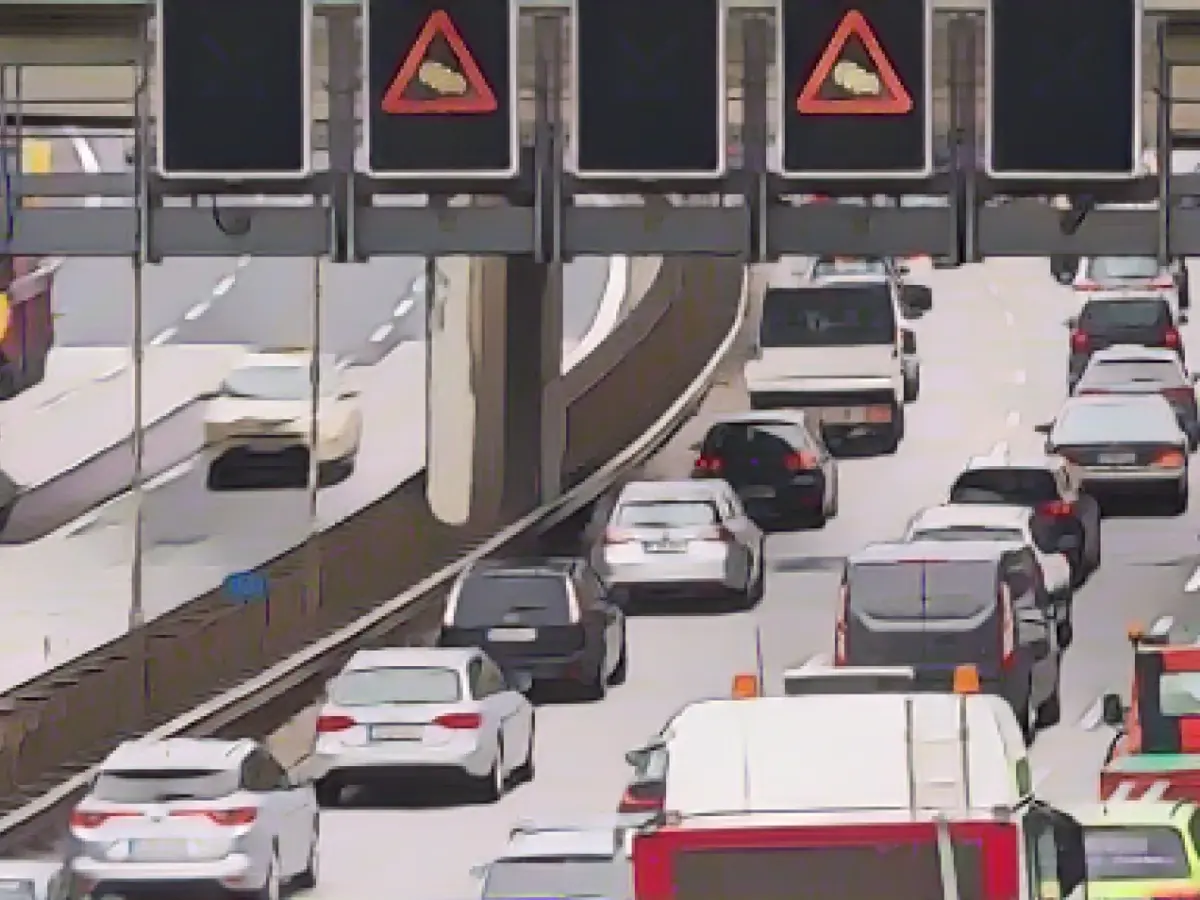Train Cancellations and Disruptions in North Rhine-Westphalia
Commuters and train travelers should brace themselves for numerous cancellations and significant changes to services following the calls for a warning strike by the train drivers' union, GDL. This union has issued a war cry for a nationwide strike at Deutsche Bahn starting from 10 p.m. on Thursday, extending until 10 p.m. on Friday. The GDL has also persuaded employees from NordWestBahn GmbH and Transdev Rhein-Ruhr GmbH to partake in the warning strike in North Rhine-Westphalia during the same period.
Deutsche Bahn has initiated emergency timetables in response, advising passengers to utilize available information systems for updated timetables. The escalating threat of the warning strike has led to major changes in DB's regional services in North Rhine-Westphalia, with only a greatly reduced service likely, in the words of a spokeswoman for Deutsche Bahn NRW. She attributes restricted services to the impending strike, though such limitations were already present before the strike commenced.
The information systems bahn.de/reiseauskunft, zuginfo.nrw, and the DB Navigator app are being updated constantly, according to the spokeswoman, in an effort to keep passengers informed. Conversely, National Express, unaffected by the GDL warning strike calls, expects high capacity utilization on its lines throughout the region, suggesting that travelers should still seek reliable information systems before embarking on their journey.
Notably, traffic jams in Germany's most populous federal state, North Rhine-Westphalia, are anticipated to remain unchanged by ADAC (Allgemeiner Deutscher Automobil-Club) estimates, despite the warning strike. ADAC spokespersons attribute this to the increasing number of commuters able to work from home and prepare for the strike.
National Express lines, including the RE 1 (RRX), RE 5 (RRX), RE 6 (RRX), RE 11 (RRX), RE 4, RB 48, and RE 7, are running as planned. Nevertheless, passengers should be aware of high capacity utilization on such lines due to the extensive train cancellations on local and long-distance lines. Additionally, it is crucial to note that warning strikes in other companies may result in delays or restrictions on National Express connections as well.
Surprisingly, the overwhelming majority of commuters in North Rhine-Westphalia (around 4.9 million worker-bees) constantly commute to work in different locations, according to State Statistical Office data from 2022. Although the data does not specify the distribution of commuters across different modes of transport, it lends the impression that a significant portion relies on trains and public transportation. While this situation might be chaotic, it does illustrate the essential nature of reliable transportation infrastructures.
In anticipation of the GDL central rally, set to happen in front of Cologne Central Station at noon on Friday, its deputy head, Lars Jedinat, and GDL district chairman Sven Schmitte expect prominent attendance from strikers, including unions and politicians. NordWestBahn, which conducts rail services in Ostwestfalen-Lippe with four lines, and RheinRuhrBahn, which operates five lines with a strong focus on the Ruhr region, are likely to face severe repercussions as a result.
RheinRuhrBahn has even preempted the situation by setting up an emergency bus service on four lines, urging passengers to stay informed by utilizing available information systems. In the aftermath of the GDL warning strike, the union has announced no further strikes until January 7th, reigniting criticism over the timing, with Deutsche Bahn admonishing the GDL for spoiling the second Advent weekend for millions of passengers.
Insights
The railway sector in North Rhine-Westphalia faces significant disruptions due to the GDL tussle with Deutsche Bahn and its affiliates, NordWestBahn GmbH and Transdev Rhein-Ruhr GmbH. As a result, commuters are stranded without reliable transportation options and forced to seek alternative solutions, such as booking taxis or utilizing available bus services. Data from the State Statistical Office indicates that North Rhine-Westphalia is a major commuter state, with rail services and public transportation playing a crucial role in connecting millions of people to their workplaces.








